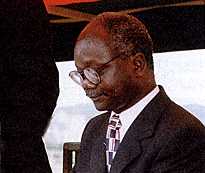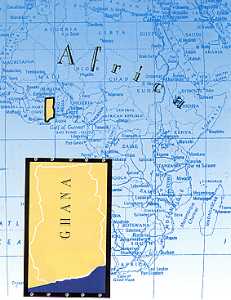 Perfect vision Perfect vision
The government of Ghana has decided that a new phase in the country's economic development is required - a long term program called Vision 2020, the objective of which is for Ghana to be medium-income country by that year - . "This accelerated growth phase is what we want to spend the next four years building, launching, starting and consolidating," the governor says.

Ghanaian institutions and agencies have key roles to play in this comprehensive scheme, with particular attention paid to fiscal policy. The government has learned to treat the varieties that influence Ghana's economy with respect and moderation, especially after its experiences in 1992. Public spending surged that year as Ghana made the transition to a multiparty democracy. Vision 2020 will be implemented as a program once the resulting micro-economic distortions are corrected.
The government's commitment is to fiscal rectitude, and, in the Western way of thinking, that means control over inflation. According to Minister of Finance K. Peprah, "Our strategy now is to quickly bring inflation down to a single digit by the middle of next year (1998), so we can proceed with Vision 2020."
| 
In the government's opinion, the present growth rate of five per cent is not good enough for a developing country where the population growth is
3 % annually and where inflation remains relatively high. The central Bank of Ghana (BoG) is working on the problem and has halved inflation to its current level of 35 %, with 20 % projected by the end of 1997.
The Governor, Dr Kwabena Duffuor, believes that removing some of the institutional and structural constraints on production is necessary to boost growth in the economy. Governor says: "I believe that Ghana, with a more stable macro-economic environment, can achieve higher rates of growth than those currently experienced. We must work very hard to achieve low monetary growth and inflation to reduce distortions in our market economy and send the correct signals to manufacturers. Most improvements must occur in our factor markets, particularly our land tenure systems and labor markets, enhancing worker productivity and assuring the country a place in the competitive global environment." |

